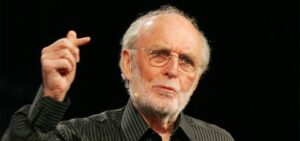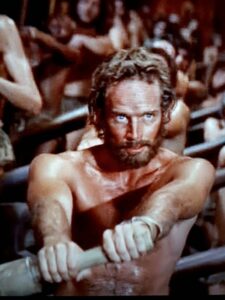The Preacher Looks Closely At Identity
The Preacher Looks Closely At Himself/Herself
In the last post we considered what God says about never sharing His glory with anyone else–and that includes the preacher. In today’s post I want to reflect on what the Bible says we should find when the preacher looks closely at himself as a servant of God.
The Background

Stuart Briscoe
In 1991 I was given a six-month leave of absence from pastoring in Southern California. I spent the time in the Boston area, studying the revival periods in the history of the United States. I also took in some other opportunities to grow as a leader of the church and a follower of Jesus Christ. One of the opportunities was to spend a couple of days at a seminar at which Stuart Briscoe was the main speaker. The seminar offered worship and Bible study, and both filled me up. But as I look back at that time 20 years later, there is one message that Briscoe spoke that sticks with me. It was all about how the preacher looks closely at himself in moments of self-reflection. Here is a brief summary of the message that helped change my perspective.
The Peoples’ View of the Preacher
The passage that I return to regularly even today for a reminder of its truths is 1 Corinthians 1-4:
 This, then, is how you ought to regard us: as servants of Christ and as those entrusted with the mysteries God has revealed. 2 Now it is required that those who have been given a trust must prove faithful. 3 I care very little if I am judged by you or by any human court; indeed, I do not even judge myself. 4 My conscience is clear, but that does not make me innocent. It is the Lord who judges me. 5 Therefore judge nothing before the appointed time; wait until the Lord comes. He will bring to light what is hidden in darkness and will expose the motives of the heart. At that time each will receive their praise from God.
This, then, is how you ought to regard us: as servants of Christ and as those entrusted with the mysteries God has revealed. 2 Now it is required that those who have been given a trust must prove faithful. 3 I care very little if I am judged by you or by any human court; indeed, I do not even judge myself. 4 My conscience is clear, but that does not make me innocent. It is the Lord who judges me. 5 Therefore judge nothing before the appointed time; wait until the Lord comes. He will bring to light what is hidden in darkness and will expose the motives of the heart. At that time each will receive their praise from God.
Remember that Paul’s relationship with the Corinthian church was complex. On the one hand, there were people in the church who were minimizing Paul’s apostleship and his contribution to the founding of the church. On the other hand, there were those who glorified Paul, saying he was more important than the Apostle Peter or the great preacher, Apollos (see I Corinthians 1:12). So in the passage we are considering, Paul seeks to correct how people should consider him or other leaders/preachers. Here’s what he says.
The Preacher Looks Closely at Himself and sees a Helper
 Regard us as servants of Christ, he says to that church. The word “servant” here is a unique one in the New Testament. The two most common words in the New Testament that are translated as servant: doulos and didaskei. We’ll consider more of those in subsequent posts. For your interest, here’s a link to a consideration of what those words mean. The word that is use here is only used in one other place in the New Testament: Acts 13:5, where it says that John Mark went along with Barnabas and Paul on the first missionary journey as their “helper”. The word is huperetes, and describes an underling, or someone who serves someone above them in the social order. Literally, the word means, “under-rower”.
Regard us as servants of Christ, he says to that church. The word “servant” here is a unique one in the New Testament. The two most common words in the New Testament that are translated as servant: doulos and didaskei. We’ll consider more of those in subsequent posts. For your interest, here’s a link to a consideration of what those words mean. The word that is use here is only used in one other place in the New Testament: Acts 13:5, where it says that John Mark went along with Barnabas and Paul on the first missionary journey as their “helper”. The word is huperetes, and describes an underling, or someone who serves someone above them in the social order. Literally, the word means, “under-rower”.
The Preacher Looks At Himself As An Under-rower
 So how does the preacher look at himself? We are under-rowers. Picture the military ships of that time. They had rows of oars, and at each one sat someone who was usually a slave. That’s the word that Paul says the Corinthians should use when they think of Paul or others in leadership. When the preacher looks closely at himself he should see the same thing–an under-rowers. The rower doesn’t decide which way the ship should go or how fast. That is determined by someone else–the captain who is up above. The under-rower simply does his job rowing the oar that as been assigned to him/her.
So how does the preacher look at himself? We are under-rowers. Picture the military ships of that time. They had rows of oars, and at each one sat someone who was usually a slave. That’s the word that Paul says the Corinthians should use when they think of Paul or others in leadership. When the preacher looks closely at himself he should see the same thing–an under-rowers. The rower doesn’t decide which way the ship should go or how fast. That is determined by someone else–the captain who is up above. The under-rower simply does his job rowing the oar that as been assigned to him/her.
The Implications
Rowers don’t compare their oar with others–they pay attention to where they have been assigned. And certainly the under-rower doesn’t take credit for victories in battle. Any accolades for performance go the captain.
So, how do you picture yourself? We are under-rowers to the captain. In the next post we’ll consider that Paul says we should also see ourselves as people who are entrusted with the mysteries that God has revealed.
For a treat, here is Stuart Briscoe, now an old man, reflecting on the British word, “Keep Calm and Carry On”. Enjoy!


